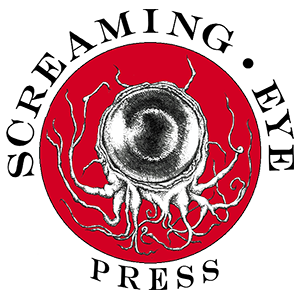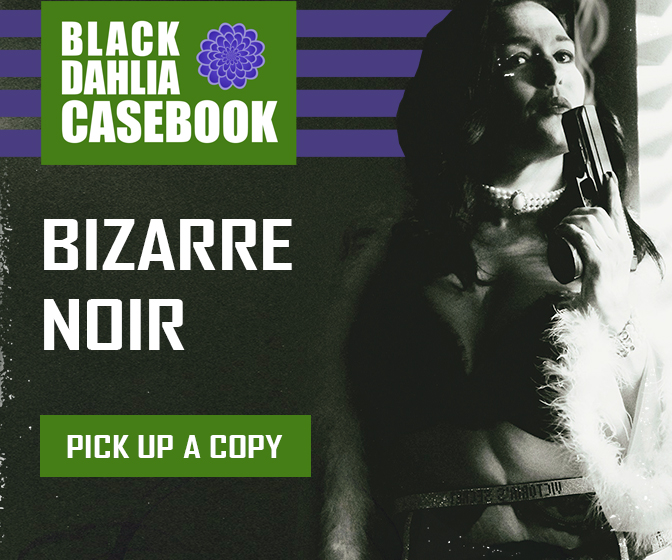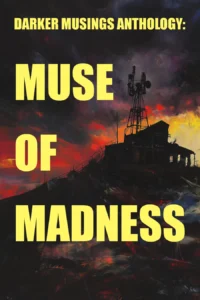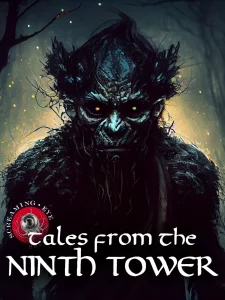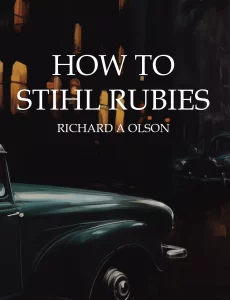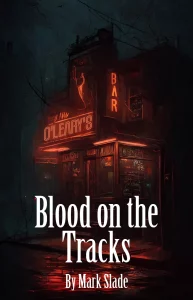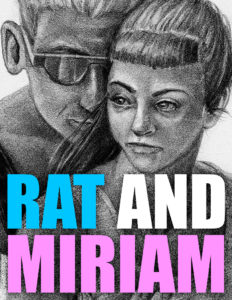Jared Stearns on Writing, Pop Culture, and Marilyn Chambers
How the biographer of Pure navigated his journey from Emerson College to San Francisco while challenging the mainstream
Written by Screaming Eye PressJared, for the readers, can we get some background on you? Where are you from, what kind of childhood did you have?
I’m originally from the greater Boston area. I grew up there, but after graduating college, I moved to San Francisco, where I’ve lived for the last twenty years. I’d never been to San Francisco before moving there; instinct guided me there. New England winters are brutal, and I wanted to get as far away as possible.
I studied journalism at Emerson College in Boston. While I was a full-time student, I also worked on the night cops beat at The Boston Globe. It was the lifestyle I could have only maintained in my early twenties.
My childhood was normal. My parents were high school sweethearts, and they’re still married. I have an older sister who’s married with two kids. It’s all rather banal when I think about it.
Were you always a writer? Who were your influences?
I didn’t become serious about writing until high school. I had an excellent English teacher named Ms. Geary in my senior year. She encouraged me to write, which helped me decide to study journalism in college. I worked on the college newspaper as the arts and entertainment editor. They can teach you all the basics of reporting in the classrooms, but no amount of school can prepare you for reporting on breaking news in real life and going to murder scenes at 2 a.m., which I did many times.
I always had aspirations to write the Great American Novel by the time I was thirty. I still might, but I can’t see myself writing fiction anytime soon.
The two best books I’ve ever read are Lolita and Valley of the Dolls, which should give an idea of my varied tastes. The best biography I’ve read is Clara Bow: Runnin’ Wild by David Stenn, which inspired my biography of Marilyn Chambers.

You picked a fascinating subject for a book: Marilyn Chambers. Why did you decide to write a biography on her?
I’ve always believed that the subject chooses the author, not vice versa. I never met her, but I first encountered her when I was about thirteen. I went snooping in my grandfather’s dresser drawer, looking for adult material, and I found it in the form of a VHS tape. The label read: Marilyn Chambers’ Private Fantasies #2. Since my grandparents weren’t home, I watched the videotape, and she instantly struck me. She had star quality that was palpable even through a tape. Then I would hear her name referenced on television shows in the nineties, and it struck me how famous she must have been. Even then, I found it odd because there are still so few “porn stars” who are household names. More than fifteen years later, while living in San Francisco, I saw Resurrection of Eve, the 1973 X-rated film Marilyn made with the Mitchell brothers. I had a similar experience in that theater as when I first saw her on video. She captivated me. For nearly a decade, I researched her and collected memorabilia. It wasn’t until 2019, when I met her daughter that I formally committed to writing a biography—but I had always thought about it.
For some readers who do not know who Marilyn Chambers is, could you give them a rundown of her life and times?
Marilyn Chambers became famous in the early seventies. She made an X-rated film, Behind the Green Door, in 1972. It was released two months after Deep Throat, which is still considered the most famous porn film of all time. For a brief, shining moment, porn became respectable. It was reviewed like any other movie and became the thing to do for young couples. There was no such thing as a “porn star” before Marilyn Chambers and Deep Throat star Linda Lovelace. And keep in mind that the only way to see an X-rated film then was in a movie theater.
Then, in May 1973, it was revealed that Marilyn was the model holding a smiling baby on the boxes of the new Ivory Snow laundry detergent manufactured by Procter & Gamble. It seems quaint in context to what’s considered controversial today, but the idea that a symbol of young American motherhood could also be the star of a hardcore sex film caused an international scandal. She was able to parlay her notoriety into a surprisingly versatile career in show business. She desperately wanted credibility as a serious actress, but she was never able to shake the “porn star” label.

Were there times you felt you would never finish the book?
That’s an interesting question. I always knew I would finish the book, but there were many times when the stress of finishing it became unbearable.
You got the approval of Chambers’ daughter. Were there any other obstacles or people standing in the way of the book being published?
Some of Marilyn’s friends and family were hesitant to speak with me. They loved Marilyn deeply and missed her, and they loved her daughter. Marilyn was taken advantage of more than a few times, so some people thought I might be trying to do the same thing. Once they realized I was legit and passionate about telling Marilyn’s story honestly, they shared memories of Marilyn with me.
You interviewed many people for the book, including David Cronenberg. How was he to interview?
Needless to say, I was delighted when he agreed to an interview. He’s such an intelligent, erudite gentleman with that soft, mesmerizing, Bob Ross-style voice. I tried to keep him on the phone as long as possible so that I could hear him talk. He was very gracious and kind, and he told me he was speaking with me because he enjoyed working with Marilyn so much, and he loved that someone was finally telling her story. So, I’m very grateful to him.
As you have explained in several interviews, Chambers was an Iconic personality from the 70’s. Do you think she could have made it as a mainstream actress? Tracey Lords did, although in a less successful career, are they comparable in pop culture?
There’s no question that Marilyn Chambers could have succeeded in so-called mainstream films had she been given the chance. She had talent, and she knew how to act. The right director (and screenplay) could have brought out an incredible performance. She was also very witty and had great comic timing. I don’t know if I could see her doing something brilliantly sardonic, like Paddy Chayefsky’s work, but she could have easily done light comedy or romantic comedies in the seventies. Honestly, I’m not sure what to say about Traci Lords. She and Marilyn remain part of a few successful actresses who got their start in X-rated films, but Traci Lords’ experience was vastly different than Marilyn’s. The world of adult entertainment had changed dramatically by the time Traci Lords appeared on the scene in the eighties.
Getting back to you as a writer, what other subjects would you like to write about, or are you done with nonfiction?
I love biographies, and I love my fellow biographers. One thing for which I am incredibly grateful is getting to become friends with extraordinarily talented biographers. Even though our subjects might be polar opposites, we learn from and help each other. Writing a biography is a unique skill and a subset of general nonfiction. That said, I’d love to do another. I have several ideas and subjects in mind but haven’t settled on one yet. It’ll reveal itself to me in time.
I’m interested in picking your brain in a few subjects that are kinda touchy. How do you feel about censorship?
I’m against censorship of art in any way. Art is subjective, and artists are truth-tellers. It’s our job to evoke feelings with our work and drive complex conversations, even if those feelings and conversations are uncomfortable. It’s mind-boggling to know people out there still want to ban books. It’s arcane and archaic. If there’s anything that’s show cause for censorship, it’s the evening news. Why are scenes of war and atrocities OK to show on television, but a woman’s bare breast or a man’s penis are considered “offensive?” I’m not suggesting that the news shouldn’t be reported. It should, and it’s the media’s job to be a government watchdog…which seems like wishful thinking at this point. However, there have been numerous studies over the years that show information overload and the negativity of the news media have far more harmful effects on our mental health than pornography ever did.
How do you feel about the trend to hide, suppress subject matters, or “cancel” creators of the past? Change already published books to appease some people who are offended?
“Cancel culture” is about acting based on perceptions and feelings rather than knowledge and intellect. “Canceling” creators of the past is akin to pretending like what they did never happened. That’s worse than confronting the controversies and the complicated history of America, in my opinion. However, we’ve gotten to a point where it seems like every one of us will be canceled at some point. We’re human. We make mistakes. Should every statue of every historical figure be removed? Probably not. Yet some are justified. Why should we keep a statue to glorify a known and proud racist, for example? But we’re not asking ourselves, “Why did we put that statue up in the first place? And how can we ensure we do a better job next time?” We live in a world of instant gratification. People want the satisfaction of participating in a cause when they don’t know why.
When it comes to pop culture, what are your favorite films, music, TV, art and books?
When it comes to pop culture consumption, it’s movies before anything else. And generally, it’s old movies. However, I love horror, so I’ll watch new horror movies. After film, it’s music. I don’t keep tabs on the Billboard charts like I used to, but I love pop. TR/ST has a new album coming out in September, and I’m looking forward to that. I typically avoid television unless it’s a comfort show like The Golden Girls. But a friend turned me on to this great comedy out of Australia called Fisk, and I’m obsessed. It’s brilliant.
What projects are you working on now?
My next project—hopefully—is something music-related. I’m waiting to hear back from the publisher, so I can’t get into details. I’m also narrowing down topics for my next biography. I think I’ve landed on one, but it really has to light a fire in me. I also have to see what type of research materials are available.
If you were stranded on Gilligan’s Island, who would be the first person you would kill and who would be the first to be romantically involved with?
(We can delete this from the interview if you like, I just want to interject some humor into the interview.)
Oh, man, this is tough. I have a person in mind for who I’d kill, but I can’t say it for fear of the wrath of this person’s rabid fanbase. As far as romantically involved, Pedro Pascal is pretty damn sexy.
Jared, where can people find you on the interwebs?
You can visit www.jaredstearns.com and sign up for email updates. You can also find me on the socials: Insta: @jaredstearnssf; Twitter: @privatechambers; Facebook: @jaredstearnssf; YouTube: @MarilynChambers-JaredStearns
Date Modified: 03-18-2025
